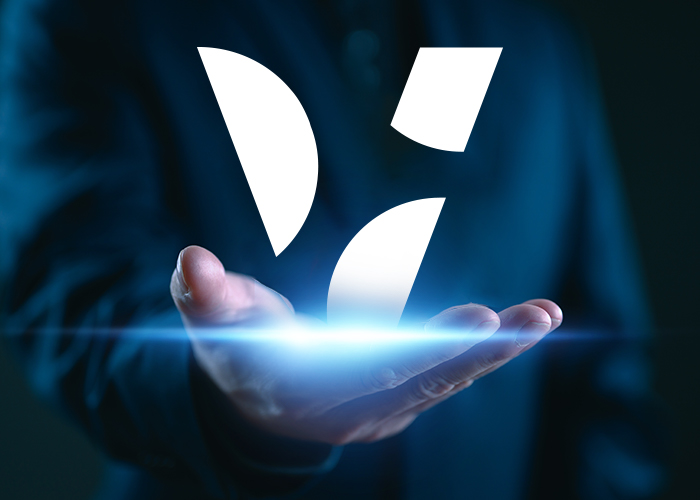What is Real Estate Tokenization?
Real estate tokenization refers to the process of converting physical real estate assets into digital tokens. This process is carried out using blockchain technology and creates a digital representation of properties. Tokens usually represent ownership or a share of a property and can be bought and sold by investors. Tokens make properties more liquid and accessible to a broader range of investors.
The Power of Real Estate Tokenization: Where Is It Used?
Residential Market Tokenization: Residential projects can reach a broader range of investors through tokenization. Investors can step into homeownership by purchasing tokens that represent specific sections of a project, or they can share in rental incomes through the tokenization of rental properties.
Commercial Real Estate Tokenization: The tokenization of office buildings makes investing in commercial properties more accessible. Investors can buy tokens that represent ownership of office spaces and share in the revenues from these assets. Likewise, large retail spaces like shopping centers can reach a wide range of investors through tokenization.
Industrial Real Estate Tokenization: Tokenization of industrial spaces, especially storage and logistics facilities, makes investing in these types of properties more accessible. Investors can share in the revenues from these facilities with small stakes. The tokenization of manufacturing facilities allows large industrial investments to be presented to a broader range of investors.
Land and Agricultural Land Tokenization: Tokenization of agricultural lands makes agricultural investments more accessible and offers investors the opportunity to share in the revenues generated from agricultural activities. Developing lands and investment opportunities can be opened to a broader audience through tokenization.
Luxury Real Estate Tokenization: The tokenization of luxury holiday homes or villas makes investing in high-cost properties more accessible. Investors can own parts of these luxury properties. The tokenization of private and high-value residences presents significant investment opportunities to a broader range of investors.
Real Estate Investment Trusts (REITs) Tokenization: The tokenization of real estate investment trusts (REITs) allows these funds to be represented with digital tokens, making REITs more liquid and accessible. The tokenization of international REITs provides global investors easy access to various real estate assets.
Real Estate Tokenization Process
Asset Selection: The first step is selecting the assets to be tokenized, usually a real estate property.
Tokenization Process: The asset is represented as a digital token on the blockchain. This process is often carried out using smart contracts, which automate and secure the buying and selling of tokens, and also verify and update ownership information.
Distribution and Sale: Tokens are offered to investors, and transactions are carried out. At this stage, investors buy tokens, thereby owning a share of the property.
Management and Transactions: Token holders may have a say in the management of the property and the distribution of income. Transactions are securely carried out over the blockchain.
Real Estate Tokenization: Revolutionizing the Investment World
The innovations offered by the digital age have created a fundamental change in the investment world. Particularly in the real estate sector, these changes, combined with the concept of tokenization, are offering revolutionary opportunities for investors. But what exactly is real estate tokenization, and how is this technology affecting the investment world? In this article, you will discover the basics, workings, and benefits of real estate tokenization.
What is Real Estate Tokenization?
Real estate tokenization refers to the process of converting physical real estate assets into digital tokens. This process is carried out using blockchain technology and creates a digital representation of properties. Tokens usually represent ownership or a share of a property and can be bought and sold by investors. Tokens make properties more liquid and accessible to a broader range of investors.
Real Estate Tokenization Process
- Asset Selection: The first step is selecting the assets to be tokenized, usually a real estate property.
- Tokenization Process: The asset is represented as a digital token on the blockchain. This process is often carried out using smart contracts, which automate and secure the buying and selling of tokens, and also verify and update ownership information.
- Distribution and Sale: Tokens are offered to investors, and transactions are carried out. At this stage, investors buy tokens, thereby owning a share of the property.
- Management and Transactions: Token holders may have a say in the management of the property and the distribution of income. Transactions are securely carried out over the blockchain.
Advantages of Real Estate Tokenization
Real estate tokenization offers numerous benefits for both investors and asset owners.
- Increased Liquidity: Traditional real estate investments are often low in liquidity. Real estate tokenization facilitates the faster and easier buying and selling of these assets. Tokens digitally represent ownership and expedite transactions.
- Smaller Investment Amounts: Tokenization allows large-scale real estate investments to be divided into smaller parts. This enables investors to invest in real estate at lower costs and create diverse portfolios. This also aids property owners in quickly liquidating their properties. Owners struggling to lease or sell their entire property can tokenize the property, making it easy and quick to do so with multiple people.
- Global Access: Tokens provide access to investors worldwide, broadening the investment opportunities and allowing international investors to enter real estate markets. Additionally, asset owners can work with investors on international platforms to lease or sell their properties to investors worldwide as tokens.
The Power of Real Estate Tokenization: Where Is It Used?
- Residential Market Tokenization: Residential projects can reach a broader range of investors through tokenization. Investors can step into homeownership by purchasing tokens that represent specific sections of a project, or they can share in rental incomes through the tokenization of rental properties.
- Commercial Real Estate Tokenization: The tokenization of office buildings makes investing in commercial properties more accessible. Investors can buy tokens that represent ownership of office spaces and share in the revenues from these assets. Likewise, large retail spaces like shopping centers can reach a wide range of investors through tokenization.
- Industrial Real Estate Tokenization: Tokenization of industrial spaces, especially storage and logistics facilities, makes investing in these types of properties more accessible. Investors can share in the revenues from these facilities with small stakes. The tokenization of manufacturing facilities allows large industrial investments to be presented to a broader range of investors.
- Land and Agricultural Land Tokenization: Tokenization of agricultural lands makes agricultural investments more accessible and offers investors the opportunity to share in the revenues generated from agricultural activities. Developing lands and investment opportunities can be opened to a broader audience through tokenization.
- Luxury Real Estate Tokenization: The tokenization of luxury holiday homes or villas makes investing in high-cost properties more accessible. Investors can own parts of these luxury properties. The tokenization of private and high-value residences presents significant investment opportunities to a broader range of investors.
- Real Estate Investment Trusts (REITs) Tokenization: The tokenization of real estate investment trusts (REITs) allows these funds to be represented with digital tokens, making REITs more liquid and accessible. The tokenization of international REITs provides global investors easy access to various real estate assets.
In recent years, the volume of real estate transactions carried out through tokenization has increased significantly. In 2022, the global tokenization market size reached approximately 20 billion dollars. As technology advances and regulations become clearer, real estate tokenization will continue to be used on a wider scale. However, it’s important to structure tokenization processes in compliance with local laws and be aware that regulatory uncertainties can pose risks to investors.

Understanding Real Estate Tokenization with an Example: Cafe Ownership
For instance, Ahmet wants to open a large cafe but struggles to meet the high investment amount required on his own. Instead, he considers dividing the cafe into several digital ‘pieces,’ each represented as a token. These pieces represent different parts of the cafe, and each part is recorded as a digital token.
Tokenization Process:
- Dividing the Cafe into Tokens: Ahmet divides his cafe into 100 parts, each represented as a token. These tokens represent a share in owning the cafe.
- Selling the Tokens: He can sell these 100 tokens to various people. Each token owner will then own a small partnership share of the cafe. That is, each token represents 1% of the cafe.
- Investor Participation: Ahmet offers these tokens for sale on an open online platform. Interested individuals can buy one or several tokens at a low cost, becoming investors in the cafe.
- Investment Returns from the Cafe: If the cafe performs well, the owners (token holders) can share in the cafe’s profits. For example, if the cafe profits each month, each token owner receives a portion of the profit.
In this example, real estate tokenization divides ownership of the cafe among many people. Thus, without making a large investment, everyone can share in the profits of cafe ownership. This system makes real estate investments more accessible and liquid.
Catch the Era and Take Action!
Real estate tokenization is an innovative technology that makes real estate investments more accessible and liquid. While offering small-scale investment opportunities to investors, it also allows property owners to reach a wide audience. Real estate tokenization offers significant advantages for investors who make the most of the opportunities presented by the digital age. Now is the time to step into this innovative technology to be part of the future real estate market.
Step into this innovative technology to secure your place in the future investment world. Contact us for more information and investment opportunities!







